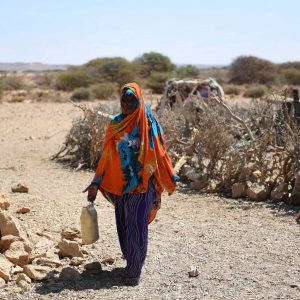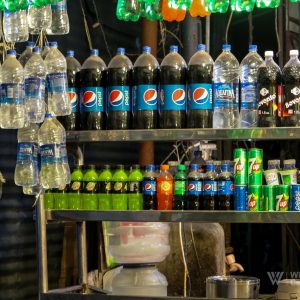The Stream, May 24: Hawaii Floods Linked To Rising Seas, Climate Change
The Global Rundown
Climate changed helped drive coastal flooding in Hawaii last month, researchers found, while similar events are predicted to occur this week and later this summer. New data show the cholera outbreak in Yemen is growing rapidly. Western Cape province in South Africa was declared a disaster zone due to a severe drought that forced Cape Town to begin rationing water. The U.S. budget proposed this week by the Trump Administration eliminates funding for regional clean water programs, including the Great Lakes Restoration Initiative. Big hydropower projects slated for South America face growing opposition from environmental and human rights groups. A major expansion of the Snowy Hydro Scheme in Australia may cost much more than previously estimated.
“Rivers are seen by governments only as a resource, not as a source of livelihoods. Vast money is involved in these mega-projects and there are often implications of corruption. Seldom is anyone held responsible for the violence and intimidation that often accompanies dam building.” –Kate Horner, executive director of International Rivers, commenting on major hydropower projects proposed for rivers in South America. The continent added 10 gigawatts of hydropower capacity last year, but opposition to big dams is mounting. (Guardian)
In context: Popularity of big hydropower projects diminishes around the world.
By The Numbers
35,217 cholera cases Number that have occurred in Yemen since April 27, marking a rapid increase, according to the latest data from the World Health Organization. Reuters
$1 billion Estimated cost for additional transmission lines necessary to carry electricity generated by a proposed 2,000-megawatt expansion of the Snowy Hydro Scheme in Australia. That brings the total price tag for the project to $3 billion, according to Senate testimony. Guardian
Science, Studies, And Reports
When floodwaters inundated coastal areas during a record-breaking high tide in Hawaii last month, as much as 45 percent of their height was attributable to rising sea levels, according to researchers at the University of Hawaii. The islands are set to experience similar flood events this week, and scientists predict climate change could make the phenomenon a regular occurrence by mid-century. Reuters
On The Radar
Cape Town, South Africa is asking residents to limit their water use to 100 liters per person, per day as reservoir levels continue to decline. The drought, considered the worst in more than a century, prompted officials to declare a disaster zone in Western Cape province on Monday. Associated Press
The federal budget proposed by the Trump Administration this week would cut $427 million from the Great Lakes Restoration Initiative and other regional programs to clean up water pollution. The cuts are part of a larger deduction in funding for the U.S. Environmental Protection Agency, which would see its budget shrink by 31 percent. Associated Press
In context: Congress budget deal protects water programs.
A news correspondent for Circle of Blue based out of Hawaii. She writes The Stream, Circle of Blue’s daily digest of international water news trends. Her interests include food security, ecology and the Great Lakes.
Contact Codi Kozacek





